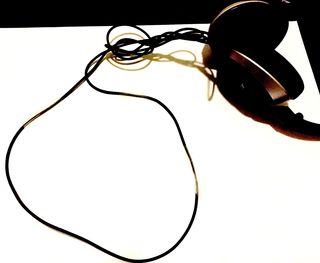Suicide
Suicide Songs
Some lyrics shout, others are subtle; all express struggle and some offer help.
Posted November 20, 2018 Reviewed by Jessica Schrader

On November 9, Variety featured a brief story about lyrics for an unreleased song from Swedish musician Avicii, who died by suicide in April. They seemed to “mirror some of the internal conflicts Avicii was facing leading up to his death.”
Starting to choke on / Your heart in your throat and / It feels just like / You can’t remember how to fight.
Yet, lyrics aren't necessarily personal. Artists also try to capture the mood of a wider audience, striving for broad appeal. Like some suicide notes, songs can resist definitive interpretation. They might even play with double meanings.
A production on the TV show, Smash, included one: “Broadway, Here I Come.” A stage actress who'd fought her way to the top finds it a daunting place, too much for her. She steps off a ledge, singing, “Broadway, here I come.” This common expression of hope for fame was turned into a description of falling toward the street—Broadway. “Going to pieces,” then also has a double meaning, and the last thing she hears sounds like both a scream and a cheer. But she will never know.
Such songs show up across genres, often in country, rap, punk, and rock. One article identifies Van Halen’s rowdy “Jump” as an encouragement to another man on a tall building to end his life. David Lee Roth said that the song was inspired by a news report about a man on a building and an onlooker apparently yelling, “Go ahead.”
Rihanna has a song called “Suicide,” with a person “standing over the edge.” It’s about fear, stress and an inability to deal with a situation. It gets harder every day to stay alive, and it’s tied (like many suicides) to a relationship.
Wikipedia, Spinditty and other sources list dozens of suicide songs, some you’ve probably never heard of and some that might surprise you.
Sarah McLaughlin’s “Angel” is about a heroin overdose. She said she understood the feeling that could inspire using it: "I've been in that place where you've messed up and you're so lost that you don't know who you are anymore, and you're miserable—and here's this escape route."
Metallica released “Fade to Black,” based on drummer Lars Ulrich's and vocalist James Hetfield’s shared “obsession with death.” In an interview, Hetfield said they knew it would upset listeners. “It's a suicide song, and we got a lot of flak for it as if kids were killing themselves because of the song. But we also got hundreds of letters from kids telling us how they related to the song and that it made them feel better.”
Ozzy Osbourne was sued in 1986 over “Suicide Solution” by the parents John McCollum. They said that the depressed teen had killed himself with a gun while listening to the song. They claimed that, with hidden lyrics, the band had urged listeners to “get the gun and try it, shoot, shoot, shoot.” Osbourne responded that “Suicide Solution” had no hidden lyrics and was actually an anti-suicide composition written about a fellow musician who'd drunk himself to death. A California court dismissed the McCollums’ lawsuit.
Among the strangest stories features “Gloomy Sunday,” also known as "the Hungarian Suicide Song." Composed by Rezso Seress and published in 1933, it expressed despair over current world conditions. Then poet Laszlo Javor wrote a different set of lyrics about a suicidal man who was depressed over the death of his lover. Sam Lewis wrote lyrics for the English version, also referring to suicide. Rumors started that the song had inspired numerous listeners to commit suicide. Press reports associated it with 19 such incidents in Hungary and the U.S. However, these deaths proved difficult to verify, especially in light of other cultural factors at the time. Still, in January 1968, Seress himself committed suicide. He jumped out a window, survived, and then used a wire to fatally choke himself in the hospital.
Yet giving up and giving in aren’t the only themes of suicide songs. Some are intended to help depressed people to “hold on for one more day.” The American rock band, Good Charlotte, received so many letters from kids who felt lost and lonely that they wrote “Hold On” to motivate their listeners to stay the course.
More explicitly helpful is “Good-bye (I’m Sorry),” by Jamestown Story. The narrator has decided that his time is over. He has numerous issues, including emotional disorders, and feels worthless. The title alone resembles some suicide notes, but embedded within the 2007 version is a spoken portion about suicide facts and the number for the National Hopeline Network. (The 2011 version does not include them.)
In 2017, American rapper Logic’s breakout single about suicide prevention reportedly increased calls to hotlines by 27%. The song title, "1-800-273-8255," is the number for the National Suicide Prevention Lifeline. Google searches for it increased by 100%. Aware that he has helped to save lives, the rapper said that it was “the most important song I’ve ever wrote.” When he and two other artists performed it for the MTV Video Music Awards, he brought suicide survivors onstage. The hotline’s calls surged by 50%.
People do respond to the messages in these songs, and many are impressionable. Sometimes they just appreciate a poetic expression of their turmoil, but some also find solace and look for help.




